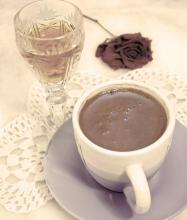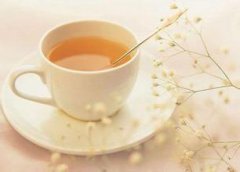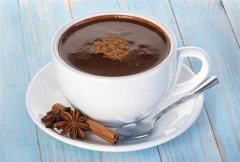A brief introduction to the market price of bright and lively Hartmann boutique coffee bean varieties

There are also many excellent manors in Pokuit, except the famous Emerald Manor, Alida Manor, Aqaba Manor and so on, all of which produce high-quality boutique coffee. This is not only due to the superior ecological conditions of the Pokuit region of Panama and the fertile volcanic ash soil of the Baru volcanic land. Another important factor is that the microclimate in the Poquet Heights of Panama is a unique and important resource for boutique coffee in the Pokuit region. This is the Panamanian environment from east to west, which allows the cold air to converge over 6500 feet through the Central Mountains, thus creating a variety of microclimates in the Pokuit region, making its temperature and rainfall very suitable for plant growth. so the coffee trees grown here are in good condition.
In such a unique planting environment, Poket is naturally not the only coffee king with emerald rose summer, both in terms of flavor, quality and value, but I think it is quite extravagant to drink rose summer every day, even if there is no economic pressure. it's not like eating shark's fin and bear's paw every day. The same is true of coffee, dabbling in a wide range in order to enjoy the pleasure of tasting coffee, there is a very cost-effective bean. And it has a very beautiful name-Flower Butterfly. She has 40% high-quality Rosa pedigree, which is composed of Rosa, Kaddura and Kaduai. It is planted in the Baru volcano region of Pokut and grows in the volcanic area at an altitude of 1600 meters. The treatment plant uses fine washing treatment. Panama's special local microclimate leads to abundant rainfall in this area, and a large temperature difference between day and night, coupled with the unique volcanic rock and soil of the volcanic area, as well as meticulous harvesting and fine treatment. It makes this coffee perform well in terms of firmness, acidity and floral aroma.
In 1931, it was exported to Kenya in obscurity from Geisha Mountain Mountain in southwestern Ethiopia, wandered to Tanzania and Costa Rica, was transplanted to Panama in the 1960s, and then went through nearly half a century before it became a blockbuster, beating the victorious armies of Bourbon, Kaddura, Kaduai and Tibika to win the first prize of the Panamanian National Treasure Bean Cup Test Competition in 2005, 2006 and 2007. In 2007, the International famous Bean Cup Test sponsored by the American Fine Coffee Association (SCAA) won the championship again, and the bidding price was sold at US $130 per pound, setting a record for the highest price in the history of competition beans. It is reported that the later Panamanian national treasure bean competition will be divided into two groups: Rose Summer and non-Rose Summer, so as not to be robbed of the brilliance of other varieties by Rose Summer. Rosa is a member of the Tibika family, but it became famous more than 70 years after leaving Ethiopia, and fulfilled the saying that Ethiopia is a treasure trove of Arabica genes. Giving a variety to go abroad is enough to stir up trouble in the coffee market.
There are many excellent manors in the Pokuit area, except the famous Emerald Manor, Alida Manor, Aqaba Manor and so on, all of which produce high-quality boutique coffee. This is not only due to the superior ecological conditions of the Pokuit region of Panama and the fertile volcanic ash soil of the Baru volcanic land. Another important factor is that the microclimate in the Poquet Heights of Panama is a unique and important resource for boutique coffee in the Pokuit region. This is the Panamanian environment from east to west that allows cold air to converge above 6500 feet through the Central Mountains, thus creating a variety of microclimates in the Pokuit region, making its temperature and rainfall very suitable for plant growth. so the coffee trees grown here grow very well.
In Poquet's unique planting environment, there is naturally not only the rose summer of emerald, the king of coffee, regardless of flavor, quality and value, but I think it is quite extravagant to drink rose summer every day, and even if there is no economic pressure, it is not like eating shark's fin and bear's paw every day. The same is true of coffee. Only by dabbling in a wide range of subjects can you enjoy the pleasure of tasting coffee more.
Then in the land of Pokuit, there is a bean with a high performance-to-price ratio. And it has a very beautiful name-Flower Butterfly. She has 40% high-quality Rosa pedigree, which is composed of Rosa, Kaddura and Kaduai. It is planted in the Baru volcano region of Pokut and grows in the volcanic area at an altitude of 1600 meters. The treatment plant uses fine washing treatment. Panama's special local microclimate leads to abundant rainfall in this area, and a large temperature difference between day and night, coupled with the unique volcanic rock and soil of the volcanic area, as well as meticulous harvesting and fine treatment. It makes this coffee perform well in terms of richness, acidity and floral aroma.
But generally speaking, the floating beans are removed after the coffee fruit is picked, then the pulp is removed, and then the coffee beans are soaked in a fermentation trough. The enzymes in the water will soften the mucus attached to the endocarp of the coffee beans, and the natural yeast will decompose the sugar in the mucus. This process is called fermentation. After the fermentation is completed, move the coffee beans to the sun field to dry. In the process of drying, you need to constantly turn the coffee beans to ensure the uniformity of the drying. Finally, the shell is kept in the warehouse, and some raw bean merchants place an order before shelling and bagging. The processed coffee tastes clean, emphasizing bright and lively acidity, as well as clear fruit flavor and floral aroma.
On the basis of very excellent quality, the very people-friendly price makes this coffee bean cost-effective. What is special about this coffee bean is that it is made up of three varieties, of which 40% are rosy summer varieties, giving this coffee a distinct rosy summer flavor. According to the information obtained, due to the historical reasons of the manor, in order to pursue yield at that time, the early Rosa varieties were mixed with the coffee trees of Kaddura and Kaduai, and in order to facilitate picking, coffee farmers did not reclassify them, but directly mixed the three varieties. After that, as Rosa rose to fame and the price soared, the processing plant began to carry out fine washing treatment for such a coffee bean.
Important Notice :
前街咖啡 FrontStreet Coffee has moved to new addredd:
FrontStreet Coffee Address: 315,Donghua East Road,GuangZhou
Tel:020 38364473
- Prev

A brief introduction to the History and Culture of the Origin and Development of Hartmann Fine Coffee beans with Citrus aroma
In such a unique planting environment, Poket is naturally not the only coffee king with emerald rose summer, both in terms of flavor, quality and value, but I think it is quite extravagant to drink rose summer every day, even if there is no economic pressure. it's not like eating shark's fin and bear's paw every day. The same is true of coffee. Only by dabbling in a wide range of subjects can you enjoy the pleasure of tasting coffee more.
- Next

A brief introduction to the planting situation of Hartman Fine Coffee beans treated with Red Wine, Climate and altitude
On the basis of very excellent quality, the very people-friendly price makes this coffee bean cost-effective. What is special about this coffee bean is that it is made up of three varieties, of which 40% are rosy summer varieties, giving this coffee a distinct rosy summer flavor. According to the information obtained, due to the historical reasons of the manor, the early rose summer varieties were in pursuit of yield at that time.
Related
- Detailed explanation of Jadeite planting Land in Panamanian Jadeite Manor introduction to the grading system of Jadeite competitive bidding, Red bid, Green bid and Rose Summer
- Story of Coffee planting in Brenka region of Costa Rica Stonehenge Manor anaerobic heavy honey treatment of flavor mouth
- What's on the barrel of Blue Mountain Coffee beans?
- Can American coffee also pull flowers? How to use hot American style to pull out a good-looking pattern?
- Can you make a cold extract with coffee beans? What is the right proportion for cold-extracted coffee formula?
- Indonesian PWN Gold Mandrine Coffee Origin Features Flavor How to Chong? Mandolin coffee is American.
- A brief introduction to the flavor characteristics of Brazilian yellow bourbon coffee beans
- What is the effect of different water quality on the flavor of cold-extracted coffee? What kind of water is best for brewing coffee?
- Why do you think of Rose Summer whenever you mention Panamanian coffee?
- Introduction to the characteristics of authentic blue mountain coffee bean producing areas? What is the CIB Coffee Authority in Jamaica?

